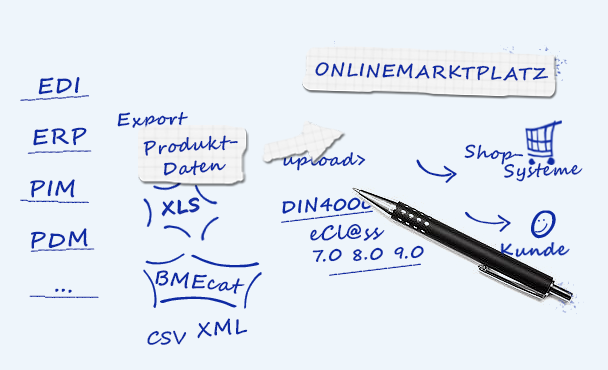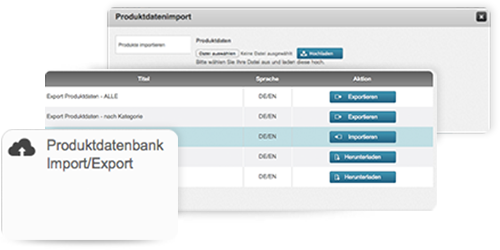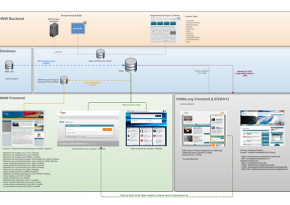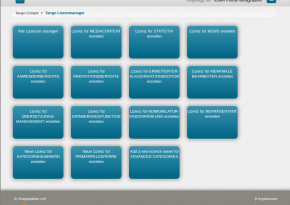The central data bub of VDMA publishing house - Product Import (PDI) and exchange of product Information
Eight professional associations make the VDMA E-Market. The companies of those professional associations can put in their products to be listed on the VDAMA e-market. Here we are dealing with a sort of Product Information Management System (PIM), where products can be managed centrally. The number of products a company puts in strongly varies. While one company may only own two or three products, other companies have thousands of products or product varieties. Since it would be quite time consuming to populate and update thousands of products and since the products already exist in the ERP systems of the companies, an automated import of those products is recommended. If a product already exists in Tango it will get updated. If it does not exist, it will be created with the automated import.

Challenges due to the variety of ERP systems
Unfortunately the companies keep their products in different ERP systems and consistent standards only partially exist. This makes it difficult to create a unified import that can take different data systems of the various companies into account. There are no uniform standards in regards to data panels, categorizing or the properties of products. The VDMA is trying to create standards with a uniform nomenclature in the various areas, so that a comparison among products and companies is possible. Since the starting situation is not consistent, initially the information has to get joined to a standard. This proves to be an extensive and complicated task.

Two opportunities for data import
This is why, at this time, there are two different options to automate the import of products in Tango:
On the one hand, there is a predefined Excel format by the VDMA. This can be downloaded as a template and then products and their information can be entered into this Excel template. Afterwards companies can upload the Excel file into Tango and the products are imported. During the importing process an extensive validation of each product takes place to secure the consistent and valid information of each entry in the system. Products available in Tango can also be exported by the company in this Excel format, incl. the assignment to the categories of the nomenclature and the classified properties. The company can update the products and e. g. also insert missing property values. Then, the updated products can be imported again where they are updated in Tango. To explain the whole product import would exceed the scope of this text.
On the other hand next to the option to fill the Excel template manually and then importing it, there is also the so-called BMECat Import. This is a standard in XML format for the exchange of product information among each other. It is a relatively common standard so that at least some member companies can import their products to a large extend automatically. To guarantee the consistent assignment to categories in the nomenclature or according to the properties, Tango currently supports the formats eCl@ss and DIN 4000.
Effort reduction for data maintenance
Other import formats, standard formats for the assignment options among one another and also the direct connection of ERP systems are planned. The goal is to import products quickly and comfortably - preferably automated, without manual activities. Since all implemented formats and ERP connections can be used for the import as well as the export, this creates the opportunity for companies to convert their product data from one format to another. The Tango system can therefore serve as a hub for different companies to convert or exchange their product data. Since the VDMA creates a uniform basis of a department with its nomenclature for the standardization, a conversion can be enabled through this. Up until now there is an option to maintain product data in Tango manually or to import it via the Excel template or the BMECAT Import. In the future all common formats, standards and also ERP systems shall be linked directly in one form or another. This will make it a lot easier for the companies to exchange their product information. In the age of Industry 4.0 the interlinking of manufacturers and their products becomes increasingly important. A functioning information exchange is crucial for this interlinking process.




